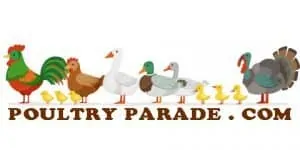Many people enjoy having some chickens on their property. They can provide eggs, meat, and entertainment for the children in your family. Chickens can also generate income and be a source of revenue. However, selling eggs or meat is usually considered taxable income, and if you have to pay taxes, it’s only fair that you can also deduct any related expenses, right?
If you own chickens, can you write off your chickens on your taxes? Generally, you can, but there are some conditions you will need to meet. To be able to write off chickens under IRS guidelines, you must be a legitimate business and comply with accounting and documentation requirements.
Disclaimer: This article is not tax advice but merely my understanding of the law. Tax law is tricky and subject to interpretation. If you are a farmer, seek advice from an accountant before pursuing writing off chickens on your tax return. Doing so incorrectly can lead to IRS audits and fines.
Table of Contents
Can You Write off Livestock on Taxes?
Farmers can deduct the cost of livestock from their taxable income, but the IRS distinguishes between hobby husbandry and businesses. The IRS requires you to report and pay income tax on profits made from your hobby, but you are not allowed to deduct expenses. Only true agricultural businesses can deduct expenses such as the purchase and upkeep of animals.
So, when would you be considered a business as opposed to a hobby farmer?
To be considered a business, you must be operating in a “businesslike manner,” which means that you need to be able to show that your farm is more than just for fun. Your farming must be considered a for-profit effort.
In order to qualify, there are a number of factors that will affect whether or not you can write off livestock on your taxes. According to the IRS’s “Farmer’s Tax Guide 2020,” factors to consider are whether:
- Are you a registered business with a bank account, business plan, etc.?
- Do you spend your time seriously working towards profitability?
- To what degree does your income depend on your chicken-keeping business?
- If you are losing money, is it your fault (e.g., spending money on “toys” and frivolous costs), or do you have legitimate business expenses?
- Are you taking active steps to increase your income?
- Do you have previous experience with chicken keeping?
- Have you run a related and profitable business before?
- How much did you earn in years where you have made a profit relative to years where you incur losses?
- Can you reasonably expect to make a future profit from the appreciation of your assets?
No one factor in the above list conclusively determines if you can employ tax deductions. Rather, chicken keepers should take all of these into account. If you make a full-time living producing and selling eggs, meat, or chicks, you should be fairly certain that your related expenses are deductible. If you are in more of a grey area, you may want to consult with a tax advisor.
Are Chickens Tax-deductible?
Like any other business, chicken farmers can deduct “all the ordinary and necessary expenses paid or incurred during the taxable year in carrying on any trade or business.” Provided your chicken keeping activities do qualify as a business, as described above, it is possible to deduct related expenses, including (but not limited to):
- water and feed
- tools, equipment, insect sprays, etc.
- chickens or baby chicks that you bought for resale or production purposes
- hired help
- loan interests
- transportation expenses
- administrative expenses (accounting, consulting fees, etc.)
If you own larger and expensive equipment, it can be deducted with appreciation over a number of years.
Depending on your state tax laws, you may also qualify for agricultural property tax breaks, which can lower your property taxes by a few hundred to several thousand every year. Here is an article on how to qualify for the Texas ag exemption.
How Many Chickens Do You Need to Be Considered a Farm?
There is no set number of chickens that you need to be considered a farm.
If your operation is significant enough that you can fulfill the previously mentioned conditions, it theoretically doesn’t matter if you have thousands of chickens or just a couple.
The idea is to determine if you have a farming business, not how many animals make up your farm. For the most part, it’s all relative to what constitutes being “large” enough for it to be a bonafide business. If you sell eggs, you will probably need quite a few hens to be a profitable and growing business. Whereas if you breed and sell rare chickens with large profit margins, you may not need as many.
Do you Even Want the Tax Breaks?
Agricultural businesses can claim various tax deductions, but they must be closely documented, or you risk a visit from the IRS. Ensure that you are a bona fide farming operation and ensure to keep detailed records of what your farm produces, how much you sold, and how much you spent.
You may accrue a slew of forms and bureaucratic hoop-jumping and time-wasters if you want to be eligible for any allowable tax breaks. This may not be worth your time and energy if you are running a small operation.


